News
-

Paul Baconnier, lauréat du prix Claudine Hermann 2023
Paul Baconnier completed his thesis at the Gulliver laboratory at ESPCI, under the supervision of Olivier Dauchot. In the course of his research, he developed an original macroscopic system made up of insectoid robots (hexabugs) and springs, (...)
-

Bronze medal 2025: Guillaume Gines experiments with DNA coding
Guillaume Gines, a research fellow at the GULLIVER laboratory, has been awarded the CNRS bronze medal for his work on DNA-based nanotechnologies and molecular programming. Guillaume Gines obtained his PhD in 2013 at the Inorganic and Biological (...)
-
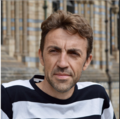
The IOP-SFP 2024 Holweck Prize awarded to Ludovic Berthier
Ludovic Berthier is Director of Research (DRCE) at CNRS. After a post-doctorate at Oxford University (2001-2004), he joined the CNRS Charles Coulomb laboratory in Montpellier in 2002. He took a sabbatical at the University of Chicago in 2007, (...)
-
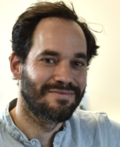
Gulliver member Joshua D. McGraw (CR CNRS) is...
Gulliver member Joshua D. McGraw (CR CNRS) is among 20 French researchers to be awarded a 2024 Horizon Europe Consolidator Grant. During the project named NoDiCE (Non-Equilibrium Diffusion in Complex Environments), the team aims to construct a (...)
-
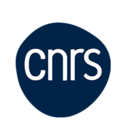
The Gulliver lab has joined Institut de...
The Gulliver lab has joined Institut de Physique as a second Institut principal together with Institut de Chimie. This is a nice recognition of the interdisciplinary science at play in the lab. We are grateful to both Institutes for this (...)
-
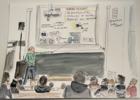
Mathilde Reyssat defended her HDR (Habilitation to direct research) on 5 December 2024, awarded by PSL University.
Her work entitled ‘Megakaryocytes, capsules and swimming drops under confinement’ describes her research activities (summarised opposite), teaching and involvement in the ESPCI community. Microfluidics offers new ways of constraining (...)
-

Ludovic Berthier joins Gulliver for a one year visit
We are happy to host Ludovic Berthier, a CNRS Research Director from the laboratory Charles Coulomb, University of Montpellier, who joins Gulliver for a one year part time stay. Ludovic is an expert in the statistical physics of disordered (...)
-
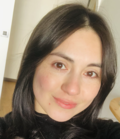
Welcome to Jeldy Cubas Hernandez
Gulliver warmfully welcomes Jeldy, our new administrative assistant, in charge of the relation with the ESPCI support functions. We wish Jeldy all the best for this new job, and thank her in advance for her support.
-
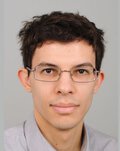
Michel Fruchart joins Gulliver
We are pleased to welcome Michel Fruchart, CNRS researcher, who has joined our lab. His research interests center on condensed matter physics, including active matter, nonlinear dynamics, statistical physics, and hydrodynamics. .
-
PHD Defense - Paul Baconnier - 23/01/2023 - Active elastic solids: collective motion, collective actuation, and polarization
Paul Baconnier’s PhD Defense, conducted under the supervision of Olivier Dauchot, will take place on: Monday January 23rd at 3:30pm IPGG amphitheatre 6 Rue Jean Calvin 75005 Paris Active elastic solids: collective motion, collective actuation, (...)

